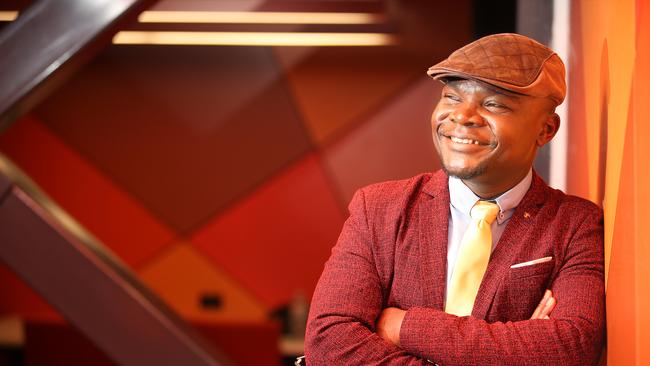Deakin PhD graduate brings researchers a step closer to developing a better screening test for Bairnsdale ulcer
RESEARCHERS are a step closer to developing a better screening test for the flesh-eating Bairnsdale ulcer thanks to new discoveries by a Deakin University PhD graduate.

Geelong
Don't miss out on the headlines from Geelong. Followed categories will be added to My News.
RESEARCHERS are a step closer to developing a better screening test for the flesh-eating Bairnsdale ulcer thanks to new discoveries by a Deakin University PhD graduate.
School of Medicine PhD researcher Selorm Avumegah dedicated his PhD to understanding the current trend in the distribution of cases around the state, and to developing protein preparations that could be used in a potential screening test.
Dr Avumegah is one of nearly 6000 graduands to take the stage at Deakin’s biggest round of graduations for the year over the next two weeks.
He said his work studying Bairnsdale ulcer — also known as Buruli ulcer — led to the potential development of a screening tool for use in at-risk communities.
“There have been reports of increasing Buruli ulcer infections rates in Victoria, but that rate is believed to be under-reported due to the lack of a rapid and easy-to-use screening test, among other factors,” he said.
“The time of infection to showing clinical symptoms of disease ranges from one month to nine months. My study protocol can potentially be developed into a tool for disease surveillance, to identify exposure or overt disease in at-risk communities.”
Dr Avumegah completed his research within the Geelong Centre for Emerging Infectious Diseases, a partnership between Deakin University, Barwon Health and the CSIRO.
Cases of the Bairnsdale ulcer increased slightly in the Barwon South West region last year.
Dr Avumegah said his studies were partly inspired by his upbringing in Ghana.
“Being African, I’m very familiar with the infectious diseases that plague both humans and animals on the continent, and I’ve always had a strong interest in medical research,” he said. “Research efforts into human and animal diseases are inadequate in many areas. This led me to my PhD project on Buruli ulcer, one of the neglected tropical diseases which has been reported in Africa and Australia.”
Dr Avumegah received his doctoral degree at last night’s ceremony. He is currently a research assistant on a Buruli ulcer case-control study in Barwon Health and CSIRO’s Australian Animal Health Laboratory.
“The opportunities I’ve had throughout my study have been a huge benefit, equipping me with relevant research skills to make a difference,” he said.
The university’s first round of ceremonies for 2019 will span across 12 events at the Waterfront campus, starting yesterday and running until February 21, with a later event at the Warrnambool campus.
Deakin vice-chancellor Professor Jane den Hollander said the graduation ceremonies signalled the start of a new phase in the graduands’ lives and careers.
“For our graduating class, their Deakin qualification will be valuable asset as they explore the range of opportunities ahead,” she said.
The Deakin University February graduation ceremonies will be available to stream live at www.deakin.edu.au/life-at-deakin/graduations
Originally published as Deakin PhD graduate brings researchers a step closer to developing a better screening test for Bairnsdale ulcer


